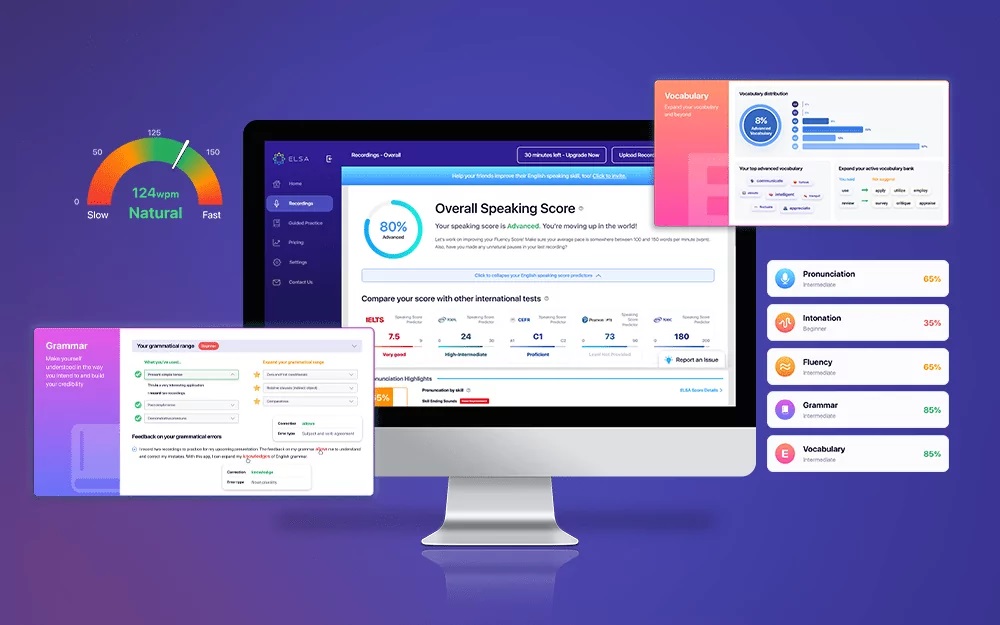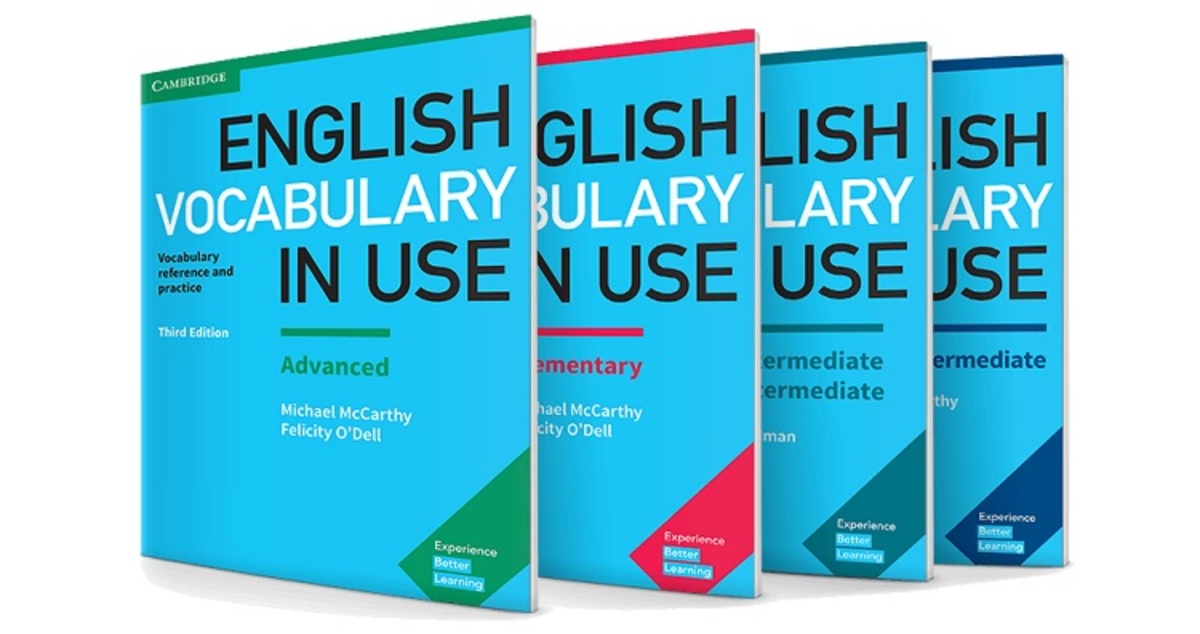
Trong kỳ thi IELTS, Speaking được đánh giá là kỹ năng “khó nhằn” nhất. Tuy nhiên, nếu nắm được bí quyết ôn luyện, phần thi này sẽ không còn là vấn đề. Dưới đây là một số bài nói mẫu Ielts Speaking Part 1,2,3 theo chủ đề giúp bạn chinh phục band 8 dễ dàng. Cùng ELSA Speech Analyzer tham khảo và ôn luyện ngay!
Sử dụng công thức A.R.E.A trong bài nói IELTS
Các bài mẫu Speaking IELTS chuẩn thường được áp dụng công thức A.R.E.A. Cụ thể:
- A – Answer: Nêu ra câu trả lời trực tiếp cho câu hỏi.
- R – Reason: Nêu lý do cho câu trả lời.
- E – Example: Nêu ví dụ cụ thể cho câu trả lời.
- A – Alternatives: Tìm và đưa ra ý kiến phản bác cho câu hỏi.
Công thức A.R.E.A này có thể áp dụng cho cả 3 part của bài nói IELTS. Thông thường, bạn chỉ cần giải quyết A.R.E là đủ, Alternatives chỉ cần nêu thêm trong những câu hỏi mang tính chất phức tạp.
Xem thêm: Cách học IELTS hữu ích và đạt hiệu quả cao
Câu hỏi thường gặp và bài Speaking mẫu trả lời cho IELTS Speaking Part 1
Dưới đây là các chủ đề, câu hỏi thường gặp và gợi ý bài nói IELTS mẫu đơn giản cho IELTS Speaking Part 1 mà bạn có thể tham khảo:
Topic Singing – Bài Speaking mẫu IELTS Speaking Part 1:
- Do you like singing?
→ I enjoy singing, but I don’t particularly appreciate singing in front of an audience. I don’t think of myself as someone who can sing. (A – Answer)
Most of the time, I can’t even hit the right note, not to mention high and low notes. (R – Reason)
I also get stage fright whenever someone looks at me while I’m singing, which results in me forgetting the lyrics. (E – Example)
I had wished to be able to boldly hold the mic and shout my favorite Paramore song from the top of my lungs, but my anxiety always gets the best of me. (A – Alternatives)

- When do you sing?
→ I don’t sing that often (A – Answer)
The reason is I don’t have the time and the right place to sing. So, I mostly sing or hum to my favorite tune during shower time. (R – Reason)
On Sunday, I will visit my lovely aunts as we hold a weekly house-tournament karaoke session. That is the only time where I can freely sing and not worry about anyone judging. (E – Example)
Topic Decoration – Bài nói IELTS mẫu cho IELTS Speaking Part 1:
- What is your house decoration style?
→ I follow the vintage, classic, 80s style when decorating my house. (A – Answer)
Some of my furniture is passed down from my grams. (R – Reason)
They have been in our family’s possession for a very long time, and we have a tradition of caring and maintaining our furniture to its best condition. (E – Example)
As I work through the house decoration, I choose to organize and reuse most of our furniture, and it appears to be working since it brings a very classy vibe to the house. (A – Alternatives)
- Do Vietnamese people like decorating their home?
→ I believe it is a matter of personal preference. (A – Answer)
For example, my father dislikes the idea of decorating your home, while my mother is constantly eager to purchase new items to do so. (E – Example)
Topic Subject – Bài Speaking mẫu IELTS Speaking Part 1
- What is your favorite subject at school?
→ I was never a student who enjoyed learning. (A – Answer)
I spent most of my time doing P.E and other physical-related subjects, but Literature was an exception that I studied with great interest. (R – Reason)
Growing up, I would either running around playing sport, or sitting somewhere reading novels. (E – Example)
I consider P.E and Literature as two of my forever favorite subjects. (A – Alternatives)
- Do you like your major? Why?
→ I’m a Literature major, and I couldn’t see myself studying anything other than this. (A – Answer)
Being in this major, I learn about cultures and why they are so different from one another, yet still hold many similarities. (R – Reason)
It reflects the origin of our civil society and how our system works through the beauty of Literature. (E – Example)

Câu hỏi thường gặp và mẫu trả lời bài nói cho IELTS Speaking Part 2
1. Describe a polite person you know
- Who he/she is
- How you knew him/her
- What he/she is like
- And explain why you think he/she is polite
Bài Speaking mẫu đơn giản cho IELTS Speaking Part 2 – Topic Person:
- Who he/she is?
The first person that comes to my mind is Nam. He is my high school and university schoolmate.
- How you knew him/her?
The first time we met was nearly 10 years ago in high school. He was a mischievous kid who frequently skipped classes, and when he did sit in class, he would sleep the whole time. He held a very smug attitude and bad-mouthed over everyone in class, since he always got perfect grades despite not putting in much effort.
However, things changed 180 when he had his heart broken by his girlfriend of 7 years. I didn’t know the exact reason, but rumor has that she got tired of his unbothered attitude while she was the one who devoted her heart to everything she did.
- What he/she is like?
I think it impacted him greatly. He is more careful with how he would say things, or approach specific jobs since he doesn’t want to come off as a smug, unconcerned, and rude person.
- Explain why you think he/she is polite?
He is now an Artificial Intelligent designer, a job with immense pressure, and he is surrounded by high-ego genius just like him. However, he has learned to initiate conversation when things get heated; learned to apologize when necessary, how to show gratitude to the people around him, and, most importantly, learned how to care.
2. Describe another language that you would like to learn
- What the language is
- Where it is spoken
- What you think would be difficult
- What would be easy about learning the language and explain why you would like to learn it.
Bài nói IELTS mẫu đơn giản cho IELTS Speaking Part 2 – Topic Language:
- What the language is?
I must admit that I’m a language nerd. I’ve learned three languages so far, but there’s one that I’ve wanted to learn for a long time, and it is Korean.
- Where it is spoken?
Korean is mainly used in Korea. However, since the Hallyu wave is taking the world by storm, you can almost hear the Korean language as soon as you log onto Youtube or any movie streaming platform.
- What you think would be difficult?
Like Chinese and Japanese, the Korean language has its own alphabet and uses a variety of characters in its writing, which is very different from my native tongue, which is the Latin language.
- Why you would like to learn it?
I remember watching K-drama and listening to K-pop since 1st grade as my sister is a K-pop fan. I must admit, the Korean leadership has successfully planned, pushed, and branded the Hallyu wave to international markets.

3. Describe a time you made a promise to someone
- What the promise was
- To whom you made it
- Whether it was easy or difficult to keep
- And explain why you made it
Bài Speaking IELTS mẫu đơn giản cho IELTS Speaking Part 2 – Topic Promise:
- What the promise was, To whom you made it
I’d like to tell you about the time I promised to bring my fiancée back to my hometown with me.
It happened a little over four months ago. We were both having a stressful time at work, so we agreed to let off steam by taking a trip to my parent’s home before our work broke us.
- Whether it was easy or difficult to keep?
We made our plan 3 months before the trip. During those 3 months, work kept piling up, we also stumbled with financial problems and couldn’t be each other best supporters.
- Explain why you made it
However, we decided to go on our “last” trip so my parents won’t be disheartened by the abrupt news. We almost called our relationship off but that trip, and my mom’s home-cooked meals, saved it.
Câu hỏi thường gặp và bài Speaking mẫu cho IELTS Speaking Part 3
1. Do you think imagination is essential for scientists?
Bài nói IELTS mẫu cho IELTS Speaking Part 3:
Yes. I 100% agree with this statement.
As we may know, scientists spend the majority of their time conducting research, conducting surveys, and discovering new information in their fields.
Most of what they are looking into is non-existent beforehand, so they usually research with nothing but a blank canvas, pre-established knowledge, and a creative and open mind to assess unpredictable situations.
2. What subjects are helpful for children’s imagination?
Bài nói IELTS mẫu cho IELTS Speaking Part 3:
I believe that all subjects can help young people develop their imagination.
It’s because their school subjects require them to think and come up with their interpretation.
They must imagine what their painting will look like before drawing it or what the song will sound like before singing it in art and music. Children are often assigned to envision numbers, chemical reactions, animals, plants, …. science classes.
3. What kinds of promises do people often make?
Bài speaking mẫu cho IELTS Speaking Part 3:
I think this is a tricky question, because people make all types of promises.
Some people, for example, promise a gift or a surprise to their friends or family; doctors promise to rescue a patient; employees promise to meet deadlines;…
Because we can make promises using almost everything, it’s difficult to specify any certain “kinds” of promises here.

4. Do you think that young people should have detailed career plans?
Bài nói IELTS mẫu cho IELTS Speaking Part 3:
Yes, I think having plans, in general, is always needed and appreciated.
For example, students should consider their future careers and personal interests when choosing their academic path.
On the other hand, having specific career plans too early is not as beneficial as it seems. Since our society changes almost daily, and no one can predict the future, it is better to have a specific plan on skills and knowledge rather than a specific career.
5. Do you think it’s important for children to learn to keep their promise?
Bài speaking mẫu cho IELTS Speaking Part 3:
It is, without a doubt, very critical.
One’s ability to keep a promise can define their credibility. In this day and age, credibility and trust are far more valuable than expensive crystals.
If you make a promise to someone and then break it, they are less likely to take upon your words in the future.
Tips chinh phục phần thi Speaking IELTS hiệu quả
Sau đây là một vài mẹo bài nói IELTS Speaking mà bạn nên áp dụng để hoàn thành một cách ấn tượng, hiệu quả:
Bấm giờ
Part 2 chỉ có 1 phút chuẩn bị và 2 phút để trả lời. Vậy nên, hãy tập trung vào những gì mình nói, đừng lo lắng nhìn đồng hồ quá nhiều. Bởi điều này sẽ khiến bạn bị áp lực thời gian, dẫn đến những sai sót không đáng có.
Thông thường, giám khảo sẽ tự động ngắt lời của bạn nếu như bạn nói dài hơn 2 phút. Đồng thời, họ sẽ hỏi thêm 1 câu hỏi liên quan trong Part 2 nếu câu trả lời hiện tại của bạn không được rõ ràng hoặc thiếu ý.
Triển khai ý trả lời
Nếu trả lời chưa đủ 2 phút nghĩa là bài của bạn đang thiếu độ dài và sự mạch lạc. Lúc này bạn cần xem lại bố cục của bài cũng như những gợi ý trong “cue card”. Hãy cố gắng bám sát câu hỏi gợi ý bởi nó chính là dàn bài “chuẩn” nhất dành cho bạn. Thông thường, mỗi câu hỏi nên được trả lời từ 2-3 ý.
Luyện tập 5 topic chính (places, people, events, things, activities)
Đây là 5 topic thường gặp nhất trong bài nói IELTS. Vậy nên, bạn có thể luyện tập thường xuyên theo những gợi ý sau:
- Topic places (chủ đề nơi chốn): Bạn có thể trình bày về một nơi mang tính lịch sử như bảo tàng, di tích,…hoặc những địa điểm nổi tiếng hiện đại như khu vui chơi, khu văn hóa, trung tâm thương mại,…
- Topic people (chủ đề con người): Có thể nói về một người thân thiết của mình như: người thân trong gia đình, thầy/cô, bạn thân,..
- Topic event (chủ đề sự kiện): Kể về một lần bạn cảm thấy hạnh phúc hoặc buồn nhất, có thể là khi trễ hẹn, lầm lỗi với người khác hay 1 chuyến đi thú vị,…
- Topic things (chủ đề đồ vật): Có thể nói về một món đồ bạn thích như quần áo, đồ chơi hồi nhỏ, món quà được tặng,..
- Topic activities: Bạn có thể nói đến một trò chơi yêu thích hoặc khi được học ngôn ngữ mới, cách trồng cây hay chơi bóng chuyền,…
Kiểm tra xem trong bài nói part 2 của bạn đã đảm bảo những điều này chưa?
- Ngữ pháp đa dạng: Chứa câu điều kiện, câu bị động hoặc mệnh đề quan hệ,…
- Vốn từ vựng tiếng Anh phong phú, sử dụng thêm các cụm từ và thành ngữ trong câu.
- Đảm bảo ý tưởng đầy đủ các nội dung như: Mặt lợi ích, ví dụ, tính phổ biến hiện nay, so sánh với những vấn đề khác,…
Để nâng cao khả năng xây dựng câu trả lời logic, bám sát đề bài, bạn nên tham khảo thật nhiều bài speaking mẫu về IELTS Speaking cả Part 1,2,3 để tạo thành phản xạ, đồng thời tích lũy được nhiều ý tưởng hay.
Ngoài ra, bạn hãy nói thật tự nhiên theo những gì đã ôn luyện, đảm bảo lưu loát và không sai ngữ pháp quá nhiều.
Ôn luyện cùng ELSA Speech Analyzer

Nối tiếp sự thành công của app học tiếng Anh phổ biến nhất hiện nay ELSA Speak. ELSA đã cho phát triển thành công và ra mắt sản phẩm ELSA Speech Analyzer. Đây được xem là công cụ đầu tiên và duy nhất trên thị trường tính đến thời điểm hiện tại có khả năng lắng nghe, phân tích lỗi phát âm và chỉnh sửa tức thì thông qua Công Nghệ A.I.
ELSA Speech Analyzer là phiên bản cao cấp hơn của app học tiếng Anh ELSA. Công cụ sẽ giúp chuyển đổi giọng nói thành văn bản và đưa ra đánh giá chuyên sâu cho người học. ELSA Speech Analyzer có khả năng đánh giá toàn diện kỹ năng nói bao gồm phát âm, ngữ điệu, độ lưu loát, thâm chí cả ngữ pháp và từ vựng.
Để lại thông tin và nhận mã khuyến mãi đặc biệt chỉ có trong tháng nàyMua Speech Analyzer giảm 41%
Cùng chính vì vậy, ELSA Speech Analyzer là “trợ thủ đắc lực”, giúp bạn chinh phục phần thi Speaking IELTS một cách dễ dàng.
Những bài luyện tập và bài nói IELTS mẫu cho IELTS Speaking Part 1, 2, 3 tại nhà hiệu quả
Bài tập Part 1
Which is more necessary for a job – experience or education?
Bài nói mẫu IELTS Speaking Part 1:
Both, in my opinion, are vital. Nowadays, a good educational background is essential to apply for a job. In comparison to an applicant with no professional experience, an experienced expert can receive a better job. Strong academic knowledge is, in fact, expected of a recent graduate. She/he accumulates practical experience and skill through time. I’m confident the majority of employers are looking for a solid mix of education and experience.
Bài tập Part 2
A Holiday You Recently Had
Bài Speaking mẫu IELTS – Topic Holiday Part 2:
I’d like to discuss a vacation I took two months ago on the English seaside. I visited a small settlement in Cornwall, a coastal location. It’s well-known for its dramatic seaside scenery, magnificent terrain, and delectable cuisine. My parents, who had never visited this part of England before, accompanied me. They’d always wanted to travel but had never got the opportunity due to work obligations.
Anyway, because Cornwall is very far away from where we live, we felt that flying would be preferable to driving. In that portion of England, the roads and traffic are famously awful. When we initially arrived in the village, we found our way to the cottage we had reserved, which had a view of the sea. I can’t express how beautiful it was there. It was just nice. My room’s windows looked out into a small harbor, where I could see all of the boats coming in and out, as well as the seagulls soaring around.
We spent most of our vacation sightseeing. We went to many of the nearby towns and villages and sampled many of the local delights, including fresh crab and lobster. My father is an avid fisherman, so he spent some time fishing while my mother and I rested in small cafés, chatting with the people. It was quite relaxing.
The thing I remember most about the vacation is how warm and hospitable everyone in the area was. It was like being at home away from home. We had made a lot of friends by the end of our two-week vacation, and I’m sure we’ll all keep in touch. If I ever had the opportunity to return, I’d like to do so and potentially remain for a few months. There’s still so much of the countryside we haven’t seen, so we’ll have lots to see when we return.
Bài tập Part 3
How can schools prepare students for work?
Bài nói mẫu IELTS Speaking Part 3:
Schools can do this in a variety of ways. To start, they might include work and career examples in their classes, such as researching the career of a successful graphic designer if the subject was graphic design. Schools can also take students on field trips to laboratories, offices, factories or other workplaces to see and learn more about how real workers do their jobs.
For older students, another effective technique is to organize more work experience or internships so students can try out a genuine job for a few hours or days. I believe all of this will certainly assist in preparing young people for work.

Trên đây là tổng hợp những bài speaking mẫu câu hỏi trong bài nói IELTS Speaking Part 1,2,3 và gợi ý câu trả lời mà ELSA Speech Analyzer Speak chia sẻ đến bạn. Hy vọng với những thông tin hữu ích này, bạn có thể vận dụng để chuẩn bị tốt nhất và chinh phục phần thi Speaking một cách dễ dàng. Đừng quên tải ELSA Speech Analyzer Speak và luyện phát âm mỗi ngày bạn nhé!
Nguồn: Tổng hợp bài nói mẫu Speaking IELTS Part 1, 2, 3 theo chủ đề đầy đủ, mới nhất 2023








